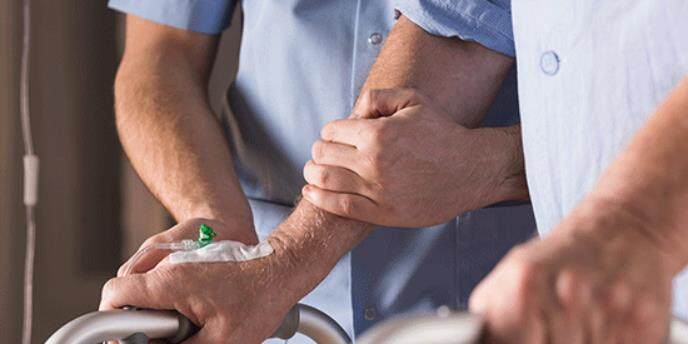

Florence Nightingale is known as the pioneer of modern nursing. International Nurses Day is held each year on 12 May, Nightingale’s birthday, to celebrate not only her contribution to evidence-based nursing practice but the contribution of nurses around the world.
The COVID-19 pandemic placed nurses and the work they do to save and improve lives firmly on the frontline of healthcare and the front pages of news outlets. Hailed as superheroes at the beginning of the pandemic, nurses and hospital workers continue to face pressures from the ongoing ramifications on our health systems.
Among them, nurse researchers straddle the worlds of academia and clinical practice. With hospital wards as their laboratories, they have a unique perspective on translating research into improved patient results.
‘Nurse researchers seek to understand what works and what doesn’t in nursing practice, and why, to continuously improve patient care. We work with clinicians, academics, patients and families, hospital management and policy makers to ensure our research is relevant to the communities we serve,’ says Deakin University’s Alfred Deakin Professor Tracey Bucknall, Foundational Chair in Nursing and Director of Nursing at Alfred Health and Director of Deakin University’s Centre for Quality and Patient Safety Research Alfred Health partnership.
‘Working in a hospital allows you to see and hear where the pressure points are and the gaps in service that could be improved through research. I love waking up each day knowing there is a problem to solve that will provide evidence to improve patient outcomes and experiences.’
A nurse for 40 years, Prof. Bucknall is recognised nationally and internationally as a decision scientist and knowledge translation expert in healthcare. Her research involves international and interdisciplinary collaborations in nursing, aged care, decision-making, patient safety and knowledge translation.
In 2018, she was awarded a Fellowship of the American Academy of Nursing and in 2019 she was inducted into the International Nurse Researcher Hall of Fame. She has also held honorary professorial appointments at Bangor University in the UK, University of Southern Denmark in Denmark and Monash and Macquarie Universities in Australia.
Prof. Bucknall’s research centres on clinical decision-making with a focus on tackling patient safety problems, symptom management of patients across clinical settings, improving communication between patients, families and clinicians and improving the implementation of research evidence in practice to improve patient outcomes.
‘As nurse researchers, we observe clinicians, patients and their families and interview them about their decisions around treatments and care,’ she says.
‘By understanding how health professionals and patients make decisions we may well be able to improve those decisions.’
Although Prof. Bucknall began nursing with the goal of becoming a midwife (‘I liked delivering lambs on our family sheep farm,’ she says), the ‘excitement’ of intensive care changed her mind.
Her career as a nurse researcher began with an appointment as a research assistant for the intensive care medical director. That led to several degrees, including a PhD, and the realisation that while she loved being an academic, she missed the clinical environment. When a joint clinical and academic role became available at Deakin in 2007 Prof. Bucknall jumped at the chance.
‘Nursing is an extremely fulfilling occupation,’ she says. ‘We deal with people across the lifespan, in sickness and in health.
‘When individuals and families are feeling the most vulnerable it is frequently a nurse beside them, monitoring and supporting them. It also offers numerous opportunities to work in varied settings, across the world.
‘Nursing has allowed me to see the world through different lens, from meeting the infection prevention needs in developing countries to working with researchers from leading international universities on patient safety.’
Prof. Bucknall’s work has improved clinical practice and patient outcomes around the world and contributed to the science of knowledge translation. Her research has informed nursing textbooks, the development of National Health and Medical Research Council (NHMRC) clinical guidelines and decision aids, and national safety and quality health service standards.
When COVID broke out in Australia, it had an immediate impact on Prof. Bucknall’s and her colleagues’ clinical work and research.
‘We had to have all hands on deck straight away to troubleshoot new problems and provide evidence to support management and clinical decisions,’ she explains.
‘We conducted rapid evidence reviews and evaluated care and organisational decisions to ensure optimal care was being provided and harm minimised for patients and families. Most research, unless it was COVID-related, was stopped. Fortunately, students and staff were able to complete their data collection in alternate ways so the research could be picked up again when possible.’
Prof. Bucknall turned her research focus to help hospitals respond to the impacts of COVID on delivering patient care. She drew on her multi-disciplinary research collaborations in projects that tested the effectiveness of temperature screening equipment such as infra-red thermal cameras, infra-red thermometers and sensor contact tracing devices.
‘We also evaluated face masks for preventing pressure injuries, studied the impact on patients and families of restricted visitation and the impact on staff wellbeing during COVID,’ she says.
In work that will have an impact beyond COVID, Prof. Bucknall and her team identified gaps in managing patients in isolation, a project that has since gained external funding to test the effectiveness of interventions to improve isolated patient care.
Prof. Bucknall says her aim has always been to improve patient care. ‘I started off my nursing career looking after a small group of patients, but I knew that at the end of my shift I had only cared for a few people, even if it made a difference to them,’ she says.
‘I moved into nursing education because I could influence a cohort of nursing students that would impact more patients. I can make a difference to an unlimited number of nurses and patients by generating and implementing research that makes a difference by preventing harm and saving lives across the world.’



































